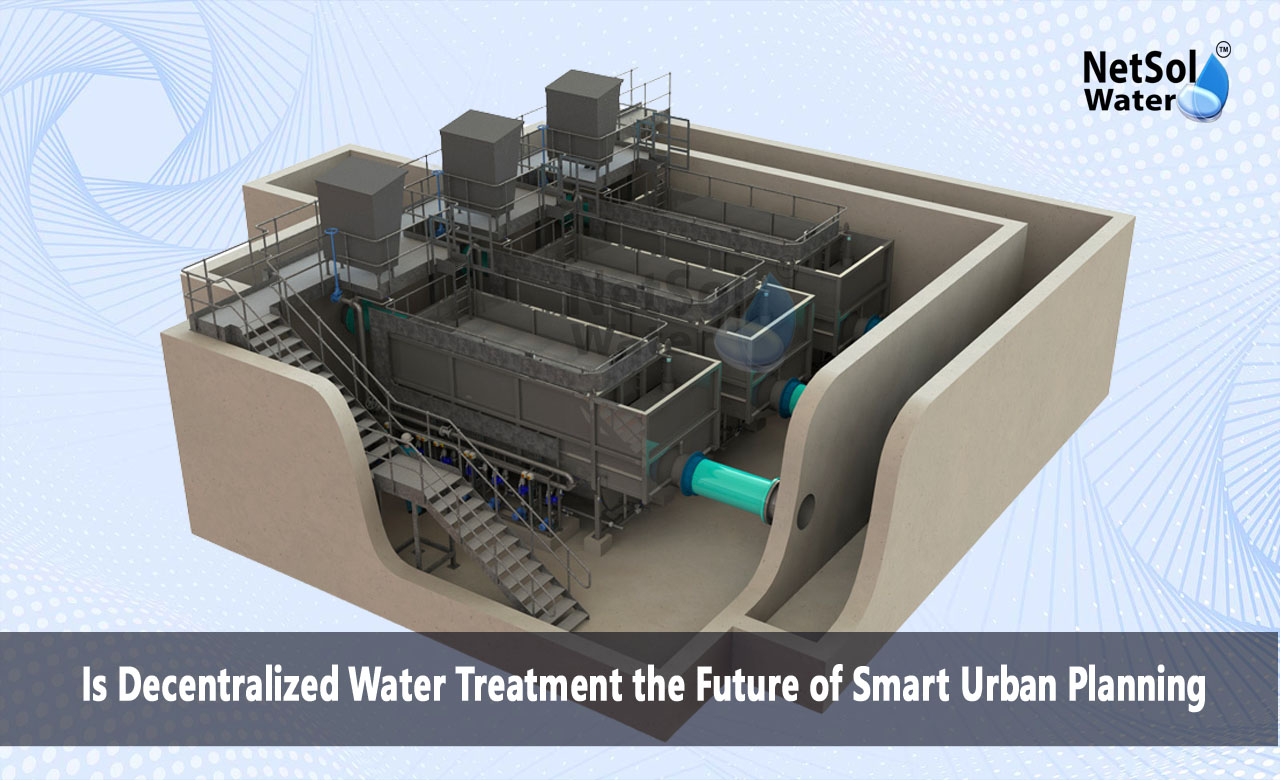Is Decentralized Water Treatment the Future of Smart Urban Planning?
Cities all over the world are growing, and with growth comes the challenge of clean water supply and wastewater disposal. Traditional, centralized water treatment technologies—though great big-picture solutions—are sometimes hindered by cost, infrastructure, and lack of adaptability. With cities increasingly smart and sustainable, most and urban planners believe that decentralized water treatment is the future of smart urban planning.
What Is Decentralized Water Treatment?
Decentralized water treatment is the treatment of water or wastewater close to where it will be used, rather than piping it all to a central plant. They can serve one building, a residential complex, a neighborhood, or small town. The water can be reused for flushing, irrigation, cooling, or even further treated for drinking.
This concept involves gaining popularity because of its flexibility, simplicity of installation, and sustainability benefit.
Why Centralized Systems Are Gaining Challenges?
Centralized systems require massive infrastructure such as pipelines, pumping stations, and treatment plants. In most developing cities, the expansion of such infrastructure is time-consuming and expensive. Apart from this, centralized systems are prone to leaks, overloading, and failure.
Climate change, urbanization, and increasing water demands are increasingly burdening central systems with meeting it. It is here that the idea that decentralized water treatment is the future of smart urban planning begins to sound sensible.
Read: Sewage Treatment Plant Manufacturer
Benefits of Decentralized Water Treatment
Following are the major reasons why decentralized water treatment represents the future of smart urban planning:
Improved Efficiency
Treatment at the point of use reduces the energy and time spent on transporting water over large distances. It reduces losses, keeps expenditures to a minimum, and speeds up the water cycle.
Reuse and Recovery of Resources
Decentralized systems promote reuse of water. Greywater or treated wastewater can be reused for irrigation, flushing toilets, or industrial cooling. This saves valuable freshwater and increases sustainability.
Scalability and Flexibility
These systems are easier to scale according to local requirements. Whether it is a small residential complex or an IT complex, decentralized solutions can be tailored according to that—one more reason whydecentralized water treatment is the future of smart urban planning.
Quick Implementation
It takes years to establish a centralized system. Decentralized treatment units, on the other hand, can be established, installed, and run quickly, providing an immediate solution to water management issues.
Disaster Resilience
In flood, drought, or infrastructure damage, decentralized units do not require closure and are able to function autonomously. The disaster resilience is important for cities vulnerable to climate-related disasters.
Applications in Modern Urban Environments
Smart cities across the globe are adopting decentralized water solutions:
· Green buildings have in-house STPs (Sewage Treatment Plants) for internal water recycling.
· IT parks and tech campuses have independent wastewater treatment plants for reuse.
· Hotels and shopping centers have decentralized RO and greywater systems to reduce dependence on municipal water.
Such real-world examples prove how decentralized water treatment is the way forward for smart city planning.
Environmental Benefits
Decentralized systems conserve natural water sources by minimizing the load on centralized systems and by stressing on minimizing withdrawal of fresh water. They also avoid pollution by purification of wastewater before its entry to the environment.
Lower energy consumption, reduced chemical reliance, and reduced physical sizes make systems such as these eco-friendly and closer to sustainability goals.
Challenges Worth Considering
Despite all the advantages, decentralized systems also have some challenges:
· Upfront cost can still remain expensive for small housing estates or rural outlay.
· Regulatory approval of decentralized treatment remains in the planning stages in most places.
· Maintenance requires qualified staff and careful monitoring.
But as technology becomes less expensive and awareness increases, these problems are now being addressed.
Role in Future Urban Development
As cities become more "smart," planning authorities are now integrating decentralized water systems into building codes and sustainability policies. Urban planners and architects are also beginning to collaborate more with environmental engineers so that new developments are water-smart in concept.
This shift in thinking about planning philosophy clearly lends itself to the belief that decentralized water treatment is the future of smart city planning. Instead of handling water as a linear commodity, cities can now plan in loops—recycle, reuse, and recover water affordably.
Conclusion
The increasing burden placed on city water infrastructures requires a shift in the thinking behind how water is handled in the urban areas. Decentralized water treatment is the future of smart urban planning because it offers adaptability, mobility, sustainability, and resilience.
Decentralized systems make cities more self-reliant, sustainable and forward-looking since they allow them to develop local solutions to local water problems with the empowerment of communities.
Do you need an advice or assistance on selecting the best water and waste water treatment unit? We have solutions for all your problems!
Let us know your problem, our experts will make sure that it goes away.
For an assistance or related query,
Call on +91-9650608473 Or write us at enquiry@netsolwater.com



